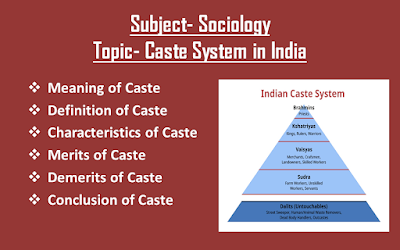Regionalism- Meaning, Definition, Characteristics, Factors and Remedial Measures
# Meaning of Regionalism
The term regionalism has two connotations: First, in the negative connotation, it can imply an excessive focus on regional interests, potentially leading to separatism, isolationism, or even extremism. Second, in the positive connotation, it can also represent a political attribute that celebrates people's affection and pride for their region, culture, language, and heritage, with a desire to preserve their unique identity and autonomy.
Regionalism is a political ideology that focuses on the interests of a particular region, group of regions or other subnational entity. The region as a social system is the relation between different groups of people.
Regionalism is the sense to affection and attachment for people belonging to one’s on region and hatred for those who belong to some other region.
In the context of India, regionalism has manifested in diverse ways and taken multiple forms, including linguistic regionalism, geographic regionalism, cultural regionalism, political regionalism and economic regionalism. Regionalism in this context is understood to mean as a feelings of the people and their love more for their own region than for the country as a whole.
# Definition of Regionalism
1. According to W.P. Scott:- “Regionalism is an approach to study the behavior that emphasizes the geographical region as a unit of analysis, stressing the relationship between man and his immediate physical environment. Economic social and culture organizations are analyzed in terms of their interrelationships and functions within the geographic region.”
2. According to A.T. Philip & K.H. Shivaji Rao:- “Regionalism refers to sub-nationalism demanding preference of the region as against the country as a whole.”
# Characteristics of Regionalism
1. Regionalism is conditioned by economic, social, political and cultural disabilities.
2. Regionalism is a psychic phenomenon.
3. Regionalism is about people coming together to celebrate and protect their shared heritage, culture, and home region.
4. It does not allow people from other regions to work and settle in the region.
5. It prioritizes the development of one's own region, disregarding the effects on or interests of other areas.
# Factors OR Causes of Regionalism
1. Geographical factor:- The main cause of regionalism is geographical which shapes the unique cultural, social, and linguistic characteristics of each region. These differences in food preferences, language, way of life, and other aspects create a sense of distinctiveness among people from various regions. As a result, they often view each other as foreigners and they acquire an attitude of fear and hatred for each other.
2. Cultural factor:- Cultural differences play a significant role in shaping regionalism. Each region has its unique customs, traditions, and cultural practices, which become an integral part of the identity of its people. As a result, individuals develop a strong affinity for their regional culture and may view the cultural practices of other regions as unfamiliar or even inferior. This cultural attachment can lead to a sense of regional pride and solidarity, but it can also create divisions and biases against other regions, fostering a "us versus them" mentality.
3. History factor:- Many regions have their own distinct history, traditions, and local heroes, which inspire and shape the identity of their people. When regional history and local personalities are neglected or marginalized, it can fuel regionalism, leading to a strong sense of pride and loyalty among locals. This can sometimes manifest as a defensive or assertive regional identity, particularly if people feel their regional heritage is being overlooked or undervalued.
4. Economic factor:- Uneven development in many parts of the country may be construed as the prime reason of regionalism and separatism. Even after independence some regions have become more advanced economically, industrially and agricultural than others. This uneven development has created a sense of relative deprivation among people in less developed regions, who feel they have been left behind. Perceiving themselves as economically disadvantaged compared to other regions, they may develop strong regional identities and demand greater autonomy or separation to address their perceived economic injustices. The recent creation of Uttarakhand State, Jharkhand State and Chhattisgarh amply illustrate this.
6. Linguistic factor:- Language plays a significant role in fostering regionalism. India is a country with many languages. People speaking the same language feel united. They developed an emotional attachment for the language and it literature. This at times turns into linguistic regionalism.
7. Political factor:- Political parties often leverage regional identity to further their political interests. They exploit regional sentiments and issues to garner support and votes, especially during election campaigns. By highlighting regional problems and issues, they create a sense of urgency and mobilize public opinion to their advantage. Moreover, numerous regional parties have emerged, capitalizing on regional aspirations and grievances to build their political base and push for regional interests. Some such parties are ADMK and AIDAMAK in Tamil Nadu, Akali Dal in Punjab, Jharkhand Party in Bihar, Assam Gana Parishad in Assam, etc.
8. Caste and religion:- When caste is combined with language conflicts or religious fundamentalism. It breeds regional feeling. It leads to dogmatism, orthodoxy and obscurantism.
# Remedial measures of Regionalism
1. Greater Priority should be given to the economic development of the backward regions.
2. Culture interaction between the regions should be promoted in large scale.
3. A balanced distribution of national resources should be made for all the regions.
4. People should be educated to wipe out separatist feeling and develop patriotic feeling.
5. The regional parties should be banned.
6. Transport and communication systems should be made wide-spread so that people from one region can move to other regions freely.
7. Mass media of communication should be put to use for spreading the message of nationalism over regionalism.
Watch video on YouTube





